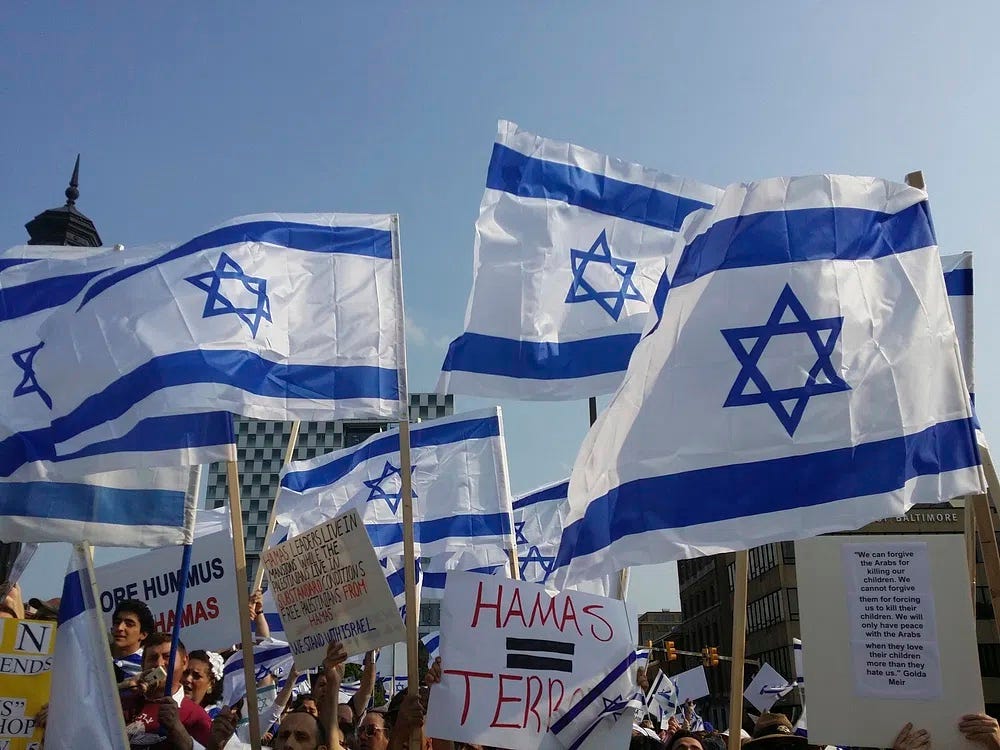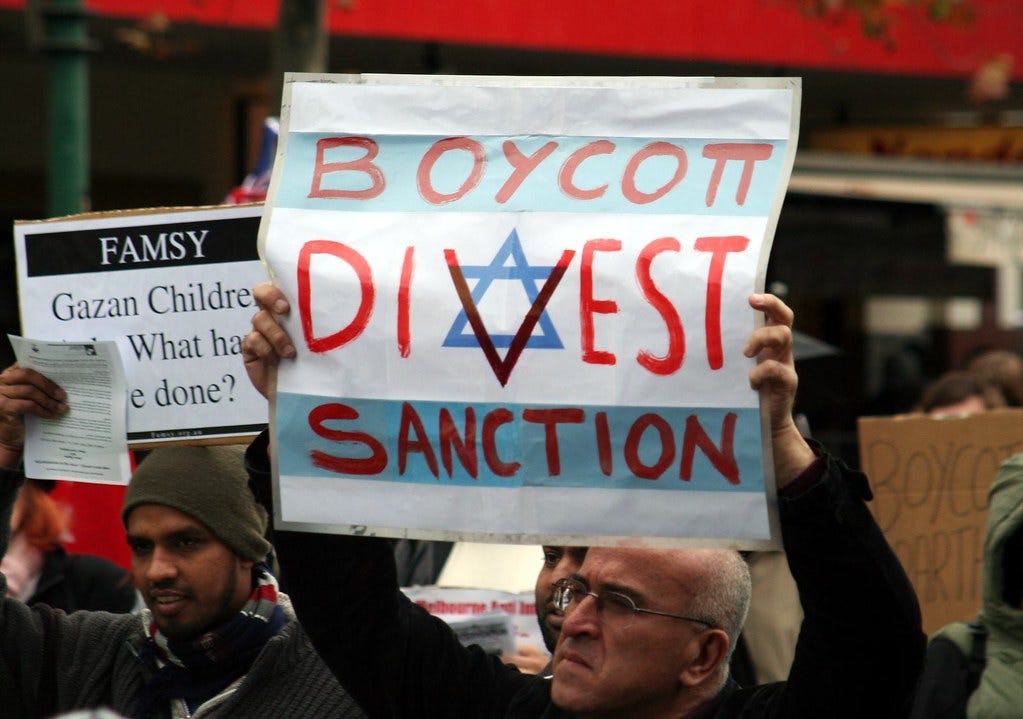Israël - Risks for political disruption
Does the conflict over Gaza create risks for economic sanctions, boycotts or disruption of oil markets?
Dear reader of political disruption,
I spent last week in the Sinaï desert. Close to the ensuing crisis in the Middle East but unaware of the current developments as I was on a ETION trip aimed to disconnect and enjoy the silence. We spent our last day on the coast in Dahab. The personnel in the hotel were mainly concerned with the victims of the conflict between Israël and Hamas. But it was clear that political events were also disrupting their own business. Normally a lot of Israëli tourists stay in Dahab. With the borders closed, they stayed away. In addition, many international travelers canceled their trips out of fear of the risks to Egypt of the conflict. So political events were disrupting the streams of tourists to Dahab and other places in the region.
Picture: rawpixel.com (CC)
The last major attack on Israël, in 1973 during the Yom-Kippur War, had major ramifications for the global economy. The Arab oil embargo drove oil prices up 300%. It was the first successful use of the oil weapon. Arab states had tried it before during the Suez Crisis in 1956 and the war between Egypt and Israël in 1967. But in both cases the embargoes were ineffective. In 1973 this was different and the oil shock reverberated through the global economy.
In this newsletter, I like to look further and see whether the effects of this horrific conflict will reverberate through the global economy once again.
I’ll focus on four possible scenarios that would disrupt the economy: a new oil embargo, disruption of oil flows economic sanctions against Israël, and a boycott movement.
Oil Embargo: The probability of a new oil embargo is very limited. When Iran called for an OPEC ban on oil exports to Israël, other OPEC Countries stated that they were not a political organization and would not use oil as a weapon. In addition, the market situation is completely different from 1973 with most OPEC oil being exported to Asia, not to the West. And OPEC is not as dominant as it was in the 70s.
Disruption of oil flows: As long as the conflict is contained to an Israeli ground offensive in Gaza and no other actors are drawn into the conflict. No major oil flows will be disrupted. If, and this seems not very likely at this moment, the conflict further escalates, drawing in Hezbollah and potentially Iran (and consecutively the United States), then major disruptions of oil flows from the Strait of Hormuz are possible. Ris premiums for oil shipments will rise as will oil prices.
This is not the most likely scenario as Iran's recent strategy tried to reduce its external tensions, getting closer to Saudi Arabia and even doing a prisoner deal with the US that would give it, in a few days, the release of 6 billion dollars that was held in an escrow account in South Korea. The release of this money has been suspended at this moment. While Iran has close relationships with Hamas (and also with Hezbollah) there are now no indications that Iran was really behind the Hamas attacks.
Economic sanctions: When Israel starts its ground offensive and continues its blockade of food and electricity to Gaza, the death toll among Palestinian civilians will be high. Reports of the alleged attack of Israël on a hospital already mobilized lots of people on the streets in the West. If Israël would be accused of committing atrocities, calls for economic sanctions in some countries could become more vocal. In the U.S. they seem extremely unlikely as the American public staunchly supports Israël. In Europe, the public is more divided and there is quite some concern for Palestinian suffering. But it seems unlikely that EU-member states would ever be able to agree on sanctions packages on Israël.
Picture by: John Englart (CC
Boycott: In the absence of economic sanctions, some organizations might call for a boycott of Israëli products. Since 2005 a Boycott, Divestment, Sanctions (BDS) movement has existed calling for a boycott of Israel for its treatment of the Palestinians. Its goal is to have a South Africa-like anti-apartheid boycott.
There are two reasons why I think a boycott will not be successful:
First, popular support for a boycott is more of a fringe thing among NGOs and has no broad appeal. The devastating attack by Hamas on Israël gives Israel in the eyes of the public quite some leeway to do everything to fight back.
Secondly, boycotting Israël will not be as easy as it was to boycott South Africa a few decades ago. The exports of South Africa in the 1980s (as were Israel’s exports many decades ago) were highly substitutable: minerals, metals, and agricultural products. Israëli exports today are high-technology goods like semiconductors computer parts, advanced machinery, pharmaceuticals, and other products that are not easily replaceable. These things are not always easy to boycott as consumers and are often not replaceable by other products. Therefore a successful broad boycott of Israeli products is unlikely. But it’s possible that more easily identifiable products like food could face a small-scale boycott.
Concluding, at this moment I don’t expect much political disruption coming from an oil boycott, sanctions, or a boycott of Israël. But if the conflict would expand and Iran or other Arab states would get involved (unlikely at this moment) global oil flows could be disrupted and prices would go up.
When things change on the ground, I’ll make an update of this analysis.
And if you like this analysis, please send it to friends or colleagues who could also benefit from it.
Thanks,
Hans
If you received this newsletter through someone else, you can subscribe for free by clicking the button below.




